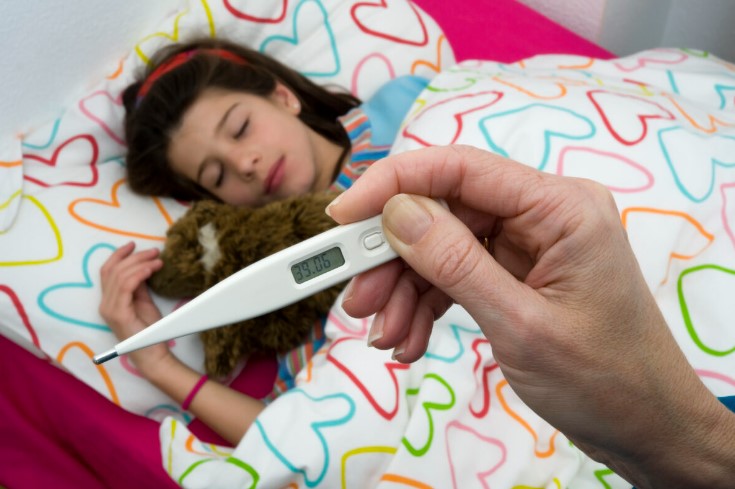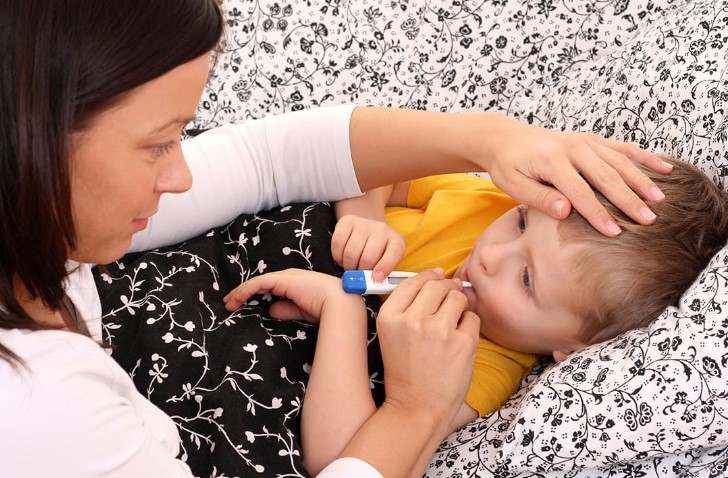
How to Treat a Fever: Comprehensive Guide and FAQs

Introduction:
When the body’s temperature rises above the normal range, it’s often accompanied by discomfort, chills, and a general feeling of malaise. Fevers can be caused by various factors, such as infections, illnesses, or other underlying health conditions. Knowing how to treat a fever properly is crucial for your comfort and recovery. In this article, we’ll explore a variety of methods to effectively manage fevers, including home remedies and when to consult a medical professional.
How to Treat a Fever:
Dealing with a fever requires a combination of rest, hydration, and appropriate remedies. Here’s a comprehensive guide to help you navigate through the fever-reducing process.
1. Stay Hydrated:
Maintaining adequate fluid intake is essential when you have a fever. Water, herbal teas, and clear broths can help prevent dehydration and support your body’s immune response.
2. Rest and Sleep:
Your body needs extra energy to fight off infections. Make sure to get plenty of rest and quality sleep to aid in the recovery process.
3. Over-the-Counter Medications:
Non-prescription fever reducers like acetaminophen and ibuprofen can help lower your body temperature and alleviate discomfort.
4. Lukewarm Bath:
A lukewarm bath or sponge bath can help bring down a fever. Avoid using cold water, as it may cause shivering and increase body temperature.
5. Dress Comfortably:
Wear lightweight and breathable clothing to promote better air circulation and prevent overheating.
6. Use Cooling Pads:
Applying cool, damp cloths or cooling pads to your forehead, wrists, and ankles can help bring down your body temperature.
7. Herbal Remedies:
Certain herbs like chamomile, ginger, and elderflower have natural fever-reducing properties. Consult with a healthcare professional before using herbal remedies.
8. Stay in a Cool Environment:
Keep your living space comfortably cool by using fans or air conditioning to help regulate your body temperature.
9. Monitor the Fever:
Regularly check your body temperature to track its progress. If the fever persists or worsens, seek medical attention.
10. Nutrient-Rich Diet:
Consume a balanced diet rich in vitamins and minerals to support your immune system’s fight against the underlying cause of the fever.
When to Seek Medical Attention:
While most fevers can be managed at home, there are situations where medical intervention is necessary. Here’s when you should seek professional medical care:
1. High Fever:
If your fever reaches 103°F (39.4°C) or higher, it’s essential to consult a doctor, especially for children.
2. Prolonged Fever:
If the fever persists for more than three days, medical attention is advised to identify and address the underlying cause.
3. Severe Symptoms:
If your fever is accompanied by severe symptoms like difficulty breathing, persistent vomiting, or a stiff neck, seek immediate medical help.
4. Chronic Medical Conditions:
Individuals with chronic conditions like heart disease, diabetes, or a compromised immune system should consult a doctor for any fever.
5. Infants and Young Children:
For infants under three months and children with high fevers, medical assessment is crucial to prevent complications.
6. Worsening Condition:
If your condition worsens despite trying home remedies, consult a healthcare professional for appropriate treatment.
FAQs about Treating Fevers:
Q: Can I use cold water to bring down a fever?
A: No, cold water can lead to shivering and raise body temperature. Use lukewarm water instead.
Q: Is it safe to give aspirin to reduce fever?
A: Aspirin should be avoided for fever reduction, especially in children, as it’s associated with a risk of Reye’s syndrome.
Q: Should I bundle up if I have a fever?
A: No, dressing lightly helps dissipate heat. Bundling up can trap heat and increase fever symptoms.
Q: Can herbal teas effectively lower fevers?
A: Some herbal teas like chamomile and ginger may help, but consult a healthcare professional before using herbal remedies.
Q: Is a fever a sign of a bacterial infection?
A: Fevers can be caused by both viral and bacterial infections. Consult a doctor to determine the underlying cause.
Q: When should I worry about a fever in my child?
A: If your child’s fever is persistent, high, or accompanied by other concerning symptoms, seek medical attention.
Conclusion:
Knowing how to treat a fever is essential for a swift and comfortable recovery. By following these expert-recommended methods and being aware of when to seek medical help, you can effectively manage fevers and promote your overall well-being.
Partner Site : Computer Technology, Health And Wellness, Addiction Treatment, Home Maintenance, Home Wine, Healthcare Information, Car Accident, Food Recipes, E-Sports News, Floor Care Advice
You May Also Like

Childhood Illnesses
February 20, 2024
Health And Care: A Comprehensive Guide to Wellness
July 25, 2023
